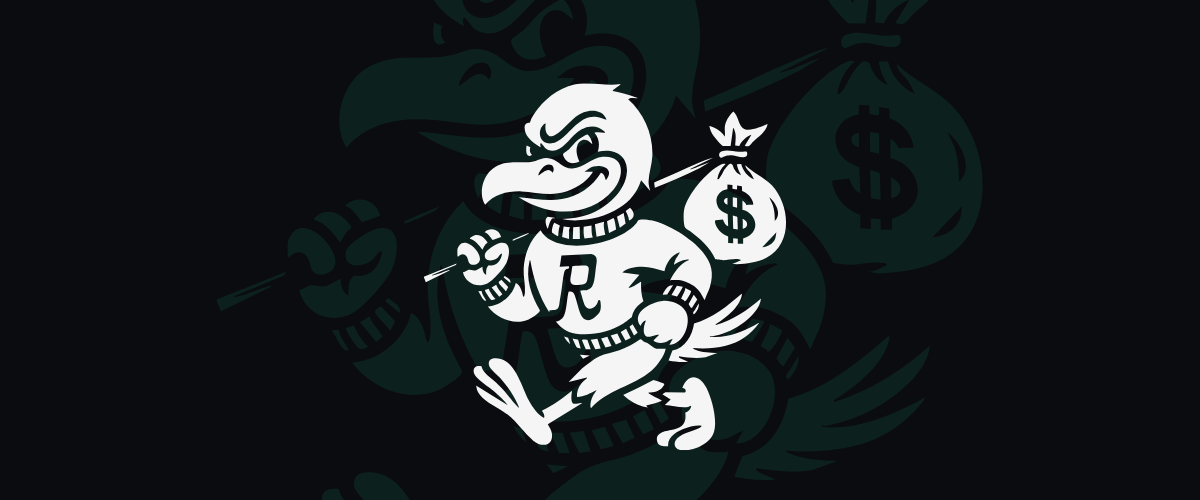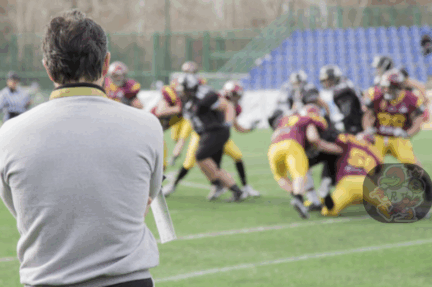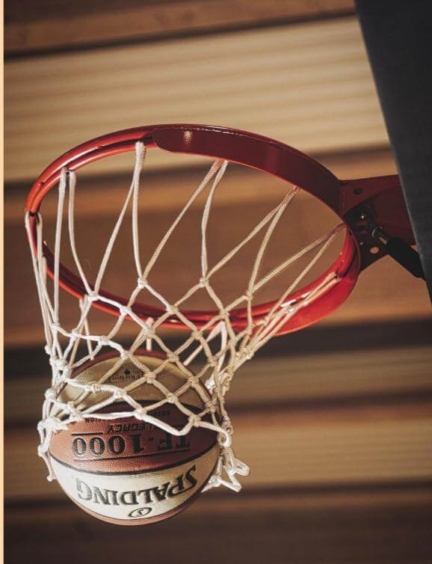Understanding how name, image, and likeness rules vary by state helps athletes, fans, and sponsors act with confidence. As of June 30, 2021, the NCAA approved an interim policy letting student-athletes earn from their NIL, use agents, and follow reporting tied to state, school, and conference requirements.
More than 30 states and D.C. now have statutes, while other places rely on institutional and conference policies. Where state frameworks exist, they often set the floor for disclosure, representation, and scholarship protections. NIL Legal Line
RallyFuel’s mission is to make helping athletes easy, compliant, and transparent. We focus on clarity, compliance, and responsible participation so university communities can build trust with athletes and sponsors.
As of 2025, more than 30 U.S. states have enacted their own NIL laws. Understanding these state NIL laws is critical for both athletes and school compliance officers.
Learn how uneven laws affect recruiting: The NIL Policy Gap.
What NIL Means Today: From NCAA Restrictions to Real Opportunities
Since 2021, college athletes have gained new ways to earn from their public profiles. The change lets players monetize their name, image, and likeness through endorsements, appearances, and licensed merchandise.
How income streams work: Typical deals include product endorsements, autograph sessions, sponsored social posts, and merchandise royalties. Each deal must tie payment to concrete deliverables — content, appearances, or licensing — not simply on-field results.
That quid pro quo standard keeps compensation legal and distinct from pay-for-play. Current NIL regulations also prohibit most schools from making payments to athletes, though a proposed settlement could change that if approved.
State limits can shape deal terms; some places restrict endorsements for gambling or alcohol. Agents and attorneys help athletes secure fair compensation and ensure disclosure. NIL Guide F1 Athletes
Rallyfuel’s role: we offer clear tools and record-keeping to identify risky offers, verify commitments, and ensure disclosures are in order — enabling fans and sponsors to assist athletes responsibly while safeguarding their rights.
NIL Limits and Restrictions: What They Are and How They Apply
While there is no nationwide cap on how much student-athletes can earn from NIL deals, various NIL limits and restrictions still apply through state laws, school policies, and NCAA guidance. These limits typically involve restricted sponsor categories (such as alcohol, gambling, or adult content), mandatory disclosure rules, or restrictions on using school logos and facilities for personal endorsements.
Some states also impose deal reporting timelines and oversight from compliance departments, which create operational boundaries around NIL activity. These functional limits are important to understand for athletes, families, schools, and sponsors to avoid violations and ensure transparency.
While NIL earnings potential remains uncapped in most regions, the structure and legality of NIL deals are regulated. That’s why it’s critical to review the specific state-level NIL laws and work with school compliance officers before committing to agreements.
What Are NIL Laws?
NIL laws are state-level regulations that define how college athletes can earn money from their name, image, and likeness. These laws vary significantly across the U.S., impacting how deals are disclosed, what agents can participate, and how schools may or may not assist in the process.
Understanding NIL laws is critical for student-athletes, sponsors, and institutions alike. While the NCAA provides general guidelines, it’s the individual state laws that determine real-world enforcement and rights.
What Are State NIL Laws?
State NIL laws are legal frameworks passed by individual U.S. states to regulate how student-athletes can monetize their name, image, and likeness. While the NCAA provides baseline guidance, states implement their own rules, timelines, and reporting obligations.
How State NIL Laws Protect Athletes and Fans
Each state outlines specific provisions to protect college athletes from exploitative contracts and ensure fan contributions are regulated. These include consent standards, agent registration, and anti-inducement clauses. RallyFuel adheres to all active NIL laws by linking fan pledges to verified eligibility, refund policies, and enrollment verification.
What Are NIL Policies?
NIL policies define how athletes, schools, and brands interact within the framework of Name, Image, and Likeness regulations. These policies are shaped by a combination of NCAA guidelines and state-level NIL laws, and they dictate who can negotiate deals, what types of endorsements are allowed, and how deals must be disclosed.
While NIL laws set the legal boundaries, institutional NIL policies translate them into everyday operations—setting the rules for boosters, team participation, and contract oversight.
What Are NIL Regulations and Why Do They Vary by State?
NIL regulations define how student-athletes can profit from their name, image, and likeness. These rules vary depending on whether they are governed by NCAA policies, state laws, or institutional guidelines. Here’s how they differ across the U.S.
For athletes seeking compliant platforms, RallyFuel explains how conditional NIL deals work within state law frameworks.
How State NIL Laws Differ Across the U.S.
Some states require school-level oversight and approval for deals. Others have disclosure timelines, agent registration mandates, or advertising restrictions. Here’s a breakdown by region.
See how Florida compares in our Florida NIL laws guide.
State-by-State NIL Law Comparison
Below is a map and chart summarizing each state’s NIL rules as of 2025.
NIL Laws: The Core Rules That Shape Athlete Rights
Across the country, core provisions define who can represent athletes and what deals require disclosure.
Common state provisions: disclosures, conflicts, and protected scholarships
Most state laws permit professional representation and require athletes to report contracts to a designated school official. These rules create transparency and help spot conflicts with team or institutional agreements.
Scholarship protections matter: Earnings from endorsements are not treated as compensation for scholarships in many places, so aid remains safe.
Activities and endorsements often restricted at the state or school level
Many regulations ban endorsements tied to gambling, alcohol, or banned substances. Institutions may add further restrictions through policy when school marks or venues are involved.
- Agent access and conflict checks are standard protections.
- Disclosure timelines and contract transparency reduce disputes.
- Remedies vary by state — injunctive relief in Colorado and private damages in Nebraska raise compliance stakes.
Rallyfuel’s role: We consolidate deal information, identify potential conflicts early, and simplify timely disclosures, allowing athletes and their backers to move forward with confidence.
The NCAA’s Interim NIL Policy and Evolving Guidance
Recent NCAA guidance has redefined how colleges can be involved in endorsements and how athletes report their deals. The interim nil policy permits athlete compensation consistent with state laws, allows professional services, and stresses timely reporting to schools and conferences.
Key tenets: compliance, representation, and reporting
Core pillars require compliance with applicable state law, use of qualified agents or advisors, and adherence to school reporting protocols. These rules aim to protect eligibility and transparency. NIL Guide
2022–2024 updates
October 2022 guidance barred schools from negotiating specific deal terms for third parties. By April 2024, schools could identify opportunities and facilitate arrangements if athletes disclose participation.
What to report after Aug. 1, 2024
- Division I athletes must report agreements over $600 to their school within 30 days.
- Prospective athletes must disclose deals within 30 days of enrollment.
- Schools must submit deidentified data at least twice yearly to the NCAA or its designee.
Rallyfuel centralizes documentation and timing so schools and athletes meet ncaa rules while preserving opportunity and transparency.
Federal Landscape: Bills, Court Actions, and the 2024 Proposed Settlement
Federal action remains a patchwork conversation as courts, Congress, and settlement talks shape national policy.
Since 2019, multiple bipartisan pieces of legislation were proposed but none passed. That repeated effort shows why a single national standard appeals to schools, conferences, and athletes seeking clarity. NIL Law Standardization
Why a uniform approach keeps coming up
Universities and compliance officers want a clear baseline across states. A national rule could reduce cross-border confusion in recruiting and competition.
Rallyfuel tracks federal moves to help campuses adapt and protect athlete rights.
Possible Outcomes if Schools Are Allowed to Compensate Athletes
On May 23, 2024, the NCAA announced a proposed settlement that could permit schools to pay athletes and distribute about $2.8 billion in back compensation. The settlement’s status depends on approval scheduled for April 7, 2025.
| Area | Possible Change | Operational Effect |
|---|---|---|
| Compensation model | Direct college payments | New payroll, donor tracking, budget shifts |
| Compliance | Federal or settlement-driven standards | Centralized reporting, revised training |
| Recruiting | Uniform rules across regions | Cross-state clarity; altered competitive balance |
| Transparency | Back-pay disclosures | Heightened audit and public reporting |
The NCAA has said schools must follow NCAA policy when it conflicts with more permissive state rules. Title IX questions briefly surfaced in a Jan. 16, 2025 memo from the Department of Education’s Office for Civil Rights, but that guidance was later rescinded.
Bottom line: Ongoing court actions, pending settlement approval, and stalled legislation keep the national picture in flux. Rallyfuel monitors changes so fans, sponsors, and colleges can respond with transparency and reduce legal risk.
Southeast Snapshot: Aggressive NIL Adoption and Enforcement Trends
The Southeast shows varied approaches that affect how athletes, schools, and sponsors interact. This region emphasizes education, disclosure, and pre-approval to reduce conflicts and protect eligibility.
Florida
Education-first: Florida requires financial literacy and life-skills workshops. Institutional guardrails help schools manage conflicts and review agreements.
Georgia
Earnings pool: Georgia allows up to 75% redistribution after graduation and also mandates financial training. That affects how athletes plan long-term deals.
South Carolina & Tennessee
South Carolina paused its statute, so athletes rely on NCAA guidance for many activities. Tennessee revised its rules to allow schools to collaborate with collectives and permit coaches to attend promotional events.
Mississippi
Mississippi requires athletes to notify their school before deals and limits endorsements during team events. Timing announcements avoids eligibility risk.
| State | Key feature | Practical note |
|---|---|---|
| Florida | Financial literacy; conflict reviews | Pre-approval workflow at many institutions |
| Georgia | Earnings-pool; education | Redistribution impacts contract choices |
| Mississippi | Pre-notification; event limits | Schedule activations around team calendars |
RallyFuel helps clarify regional regulations so you can engage with athletes in a legal and ethical way. Our tools track education, pre-approval steps, and conference reporting to keep deals transparent.
West Coast and Southwest: Pioneers and Policy Refinements
Pioneering measures from California to Nevada created new expectations for athlete compensation and disclosure. These western policies shaped how colleges, sponsors, and fans approach deals today. NIL Money D1 Vs D2
California’s Fair Pay to Play Act and ongoing amendments
California led the shift with the Fair Pay to Play Act, effective Sept. 1, 2021. That law opened commercial opportunities and still influences proposed changes at the state and national levels.
Arizona and New Mexico: Scholarship protections and game-time limits
Arizona protects scholarships when athletes sign compensation agreements and bars contracts that conflict with team or IP rights. This helps maintain eligibility and access to academic resources.
New Mexico limits endorsements during games and bans use of team gear in many promotions. Plan activations outside competition windows to avoid problems with activity restrictions.
Oregon and Nevada: Royalties, education, and disclosure requirements
Oregon requires royalties when merchandise uses an athlete’s public profile. Contracts should align with team obligations and royalty schedules.
Nevada mandates financial literacy and timely contract disclosures to schools. These regulations make compliance and record-keeping essential.
Practical takeaways: California’s precedent matters, Arizona and New Mexico protect scholarships and in-game integrity, Oregon enforces royalties, and Nevada stresses education and reporting.
RallyFuel enables royalty tracking, disclosure scheduling, and conflict reviews, helping you comply with state regulations and safeguard athlete rights with confidence.
Midwest and Great Plains: School Involvement and Disclosure Regulations
A midwestern approach blends campus help with tight reporting so athletes and programs stay compliant and competitive.
Illinois lets schools assist in securing deals but bars endorsements tied to gambling, alcohol, and tobacco. Pre-clearing concepts with compliance staff reduces delays and protects eligibility.
Missouri
Missouri allows high school athletes to sign agreements after they commit to a college team. The state forbids NCAA penalties for protected activity, which helps plan pre-college partnerships.
Nebraska and Oklahoma
Nebraska gives each institution latitude to design its own policy. Read campus rules closely when state statutes are light.
Oklahoma permits school assistance and requires disclosures within 72 hours. That short window means teams, agents, and sponsors must coordinate fast.
Colorado and Michigan
Colorado also mandates a 72-hour disclosure timeline and protects an athlete’s right to profit from public image work.
Michigan allows agents but requires deals to avoid conflicts with institutional contracts. Apparel and branding limits can block some promotions.
Practical steps: notify compliance early, pre-clear sensitive industries, and build a 72-hour checklist for reporting.
| State | Institution Role | Disclosure Window |
|---|---|---|
| Illinois | Can assist; blocks gambling/alcohol/tobacco endorsements | Follow campus reporting timelines |
| Missouri | Allows post-commitment high school deals; NCAA protections | Varies by college policy |
| Nebraska | Institution-led policies; campus-specific guidance | Depends on school |
| Oklahoma | School assistance allowed | 72 hours |
| Colorado | Protects athlete profit; requires conflict checks | 72 hours |
| Michigan | Permits agents; bans apparel conflicts with school branding | Per institution rules |
Rallyfuel helps athletes, schools, and sponsors sync disclosures and conflict checks so short timelines and varied rules are manageable and transparent.
Northeast and Mid-Atlantic: Protections, Prohibitions, and Policy Detail
The Mid-Atlantic corridor mixes strong athlete protections with narrowly drawn prohibitions. Rules in this region shape who can negotiate deals, how brand marks are used, and when on‑campus activations may happen.
New York and New Jersey
New York amended its law in 2023 to strengthen protections and bar NCAA penalties for compliant name-based deals. That change gives athletes clearer safeguards and predictable compliance paths.
New Jersey bans endorsements in certain product categories — for example, alcohol, gambling, and pharmaceuticals — and prevents conflicts with team contracts. These restrictions guide contract structure and messaging.
Pennsylvania
Pennsylvania prohibits institutions from arranging third-party compensation. This keeps schools from brokering deals and clarifies who may negotiate on an athlete’s behalf.
Connecticut and Maryland
Connecticut requires approvals for logo usage so schools can protect brand integrity. Plan creative work around institutional signoff.
Maryland forbids in-person advertising during official team activities. Time activations outside practices, games, and team events to avoid violations.
- Takeaway: Follow state rules, respect restrictions, and document approvals.
- Rallyfuel: We help fans, sponsors, and athletes spot risks, secure permissions, and run compliant campaigns that protect eligibility.
Compliance Playbook: How Athletes, Schools, and Fans Navigate Differences
When fans, sponsors, and compliance officers operate from the same playbook, confusion decreases and agreements come together smoothly. NIL Niche Strategy
Quid pro quo requirements and avoiding pay-for-play risks
Quid pro quo means every agreement must list specific deliverables and pay only for work done. The NCAA requires Division I athletes to report deals over $600 within 30 days, and prospective athletes must disclose within 30 days of enrollment.
Disclosure timelines, contract conflicts, and use of school marks
Document scopes, timelines, and fair-market value so nil deals match deliverables. Run conflict checks before using a school’s marks or facilities to avoid breaches of team contracts.
When state law is silent: conference and institutional policy control
If state laws do not set a rule, conference or institutional policy will. Contact your compliance office early so the conference and school guidance steer approvals.
Implications for fans and sponsors involved in NIL initiatives
Fans and sponsors must avoid offering impermissible recruiting benefits. Assistance should be transparent, linked to verifiable activities, and processed through the proper approval channels.
- Keep: written deliverables, payment terms, and timelines.
- Run: conflict checks against licensing and team agreements.
- File: disclosures promptly and track amendments.
RallyFuel’s mission is to make athlete engagement easy, compliant, and transparent. We help you document deliverables, meet disclosure deadlines, and respect school marks so college athletes and fans can engage with confidence.
Conclusion
Practical steps—clear contracts, fast reporting, and institutional signoffs—turn opportunity into protection.
The 2021 interim nil policy, and later 2022 and 2024 guidance, created a new operating model for college athletes across more than 30 state statutes and campus rules.
Follow disclosure timelines, document deliverables tied to your name, image, and likeness, and route proposals through your school so deals stay within ncaa guidance.
RallyFuel offers audit-ready records, streamlined workflows, and clear tracking to ensure sponsors, fans, and athletes can operate ethically and confidently as national regulations continue to evolve.
Following NIL regulations is essential for athletes and compliance staff alike. Make sure your institution meets both state and NCAA requirements in 2024.
To stay compliant, athletes and institutions must follow both NCAA rules and specific state NIL laws. Bookmark this guide for regular updates by jurisdiction.
Learn More About the NIL Landscape for Schools
Name, Image, and Likeness plays an increasing role in college sports, and understanding how it works often requires more than individual articles or news updates.
RallyFuel is a platform focused on NIL-related topics across college athletics. It brings together information about athletes, NIL activity, school responsibilities, and the broader structure behind modern college sports — helping readers explore the topic in more depth.
👉 Discover NIL Tools for Schools – Learn how your program can stay ahead of the NIL curve.
FAQ
What does “name, image, and likeness” mean for college athletes today?
It refers to an athlete’s right to earn money from endorsements, appearances, social media posts, and other personal ventures. Colleges and conferences still set rules on using school marks, team facilities, and in-season activities, while state and federal actions influence disclosure and agent registration requirements.
How do state-level rules differ across the country?
States vary widely. Some, like California and Florida, were early adopters with broad protections and disclosure requirements. Others set tighter limits on game-day activities, required pre-approval for events, or restricted certain sponsor categories. When a state is silent, universities and conferences often fill the gap with their own policies.
Are schools allowed to compensate athletes under the current guidelines?
Most federal and collegiate regulations still ban payroll-style payments for athletic performance. However, proposed federal laws and court settlements have explored limited options for schools to compensate athletes, and allowing such payments would significantly alter recruiting dynamics, competitive balance, and compliance structures.
What must athletes disclose to their school or conference?
Disclosure rules usually cover contract terms, sponsor identity, payment amounts, and potential conflicts with team obligations. Deadlines differ by state and institution; some require reporting within 24 to 72 hours of signing a deal, while others set longer timelines and require school approval before public promotion.
Are endorsements considered “pay-for-play” or legitimate compensation?
Endorsements tied to a player’s personal brand are generally treated as legitimate compensation if they don’t require on-field performance or recruitment inducements. The boundary is crossed when payments are tied to athletic performance or aimed at influencing recruitment, as these actions can lead to sanctions.
What restrictions do schools typically place on athlete activities?
Institutions often limit use of official logos, require compliance with team schedules, block partnerships with tobacco or gambling firms, and prohibit promotions during team events without approval. Many also mandate educational sessions on contract review and tax obligations.
How do agents and professional services fit into the picture?
Athletes may hire agents, lawyers, and marketing reps, but some states and schools require registration or limit who can provide services. Contracts should be vetted to avoid conflicts with eligibility rules, and professional representatives must follow disclosure and certification standards set by institutions or states.
What changes did the NCAA introduce in its interim policy updates from 2022–2024?
Updates clarified school reporting obligations, tightened rules around professional services and agent involvement, and adjusted guidelines for facilitating third-party deals. They also emphasized compliance with state statutes while pushing for clearer timelines on disclosures and approvals.
How do proposed federal actions affect athletes and schools?
Federal legislation aims to create uniform standards on endorsements, agent regulation, and the role of institutions. A national law could reduce differences among states, but current proposals vary on whether schools could compensate athletes, how eligibility would be safeguarded, and what reporting framework would be implemented.
What should athletes in the Southeast expect compared with the West Coast?
Southeastern states often emphasize disclosure and enforcement, with pre-approval processes in places like Mississippi and pooled-earning approaches in Georgia. West Coast states like California focus on broad earning rights and education, coupled with robust protections for scholarship status and royalty arrangements.
Do high school athletes face the same rules once they commit to a college?
Not always. Some states and schools restrict pre-collegiate deals or require that high school athletes who sign endorsements remain eligible under both state and high school association rules. NCAA recruiting and eligibility guidance also plays a role when a commitment is involved.
What are common compliance pitfalls for sponsors and fans?
Pitfalls include using school logos without permission, offering deals that appear to influence athletic performance, missing disclosure deadlines, and failing to check state or institutional bans on certain industries. Sponsors should coordinate with compliance officers before activating campaigns.
How quickly should a school be notified about a new athlete endorsement?
Notification windows vary. Many institutions require notice within 24 to 72 hours of signing, while some states set specific disclosure periods. Athletes should consult their compliance office immediately to ensure timely reporting and approval.
What protections exist for scholarships when athletes sign deals?
Most state and institutional rules protect scholarship status, preventing commercial deals from jeopardizing financial aid. Contracts must avoid clauses that conflict with scholarship terms, and schools typically offer reviews to safeguard eligibility and aid status.
Where can athletes and schools find reliable guidance on contracts and taxes?
Universities usually offer compliance offices, legal counsel, and financial education programs. Athletes should consult licensed attorneys and certified public accountants familiar with endorsement contracts and tax reporting to avoid unintended liabilities.






Leave a Comment